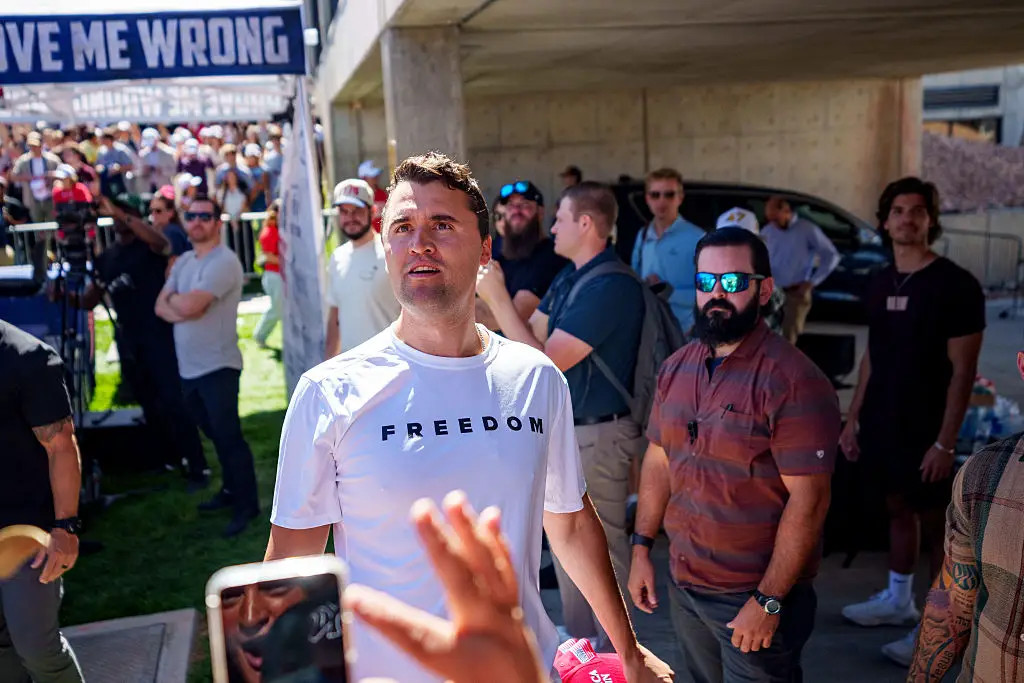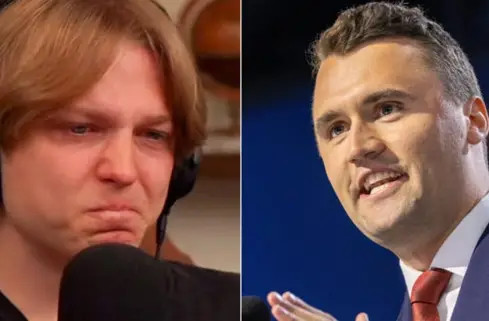The Impact of Tragedy on Political Discourse: A Reflection on Charlie Kirk’s Assassination
The political landscape often sees its most intense debates played out in the public eye, particularly on social media platforms. In a deeply shocking turn of events, the assassination of Charlie Kirk, a prominent conservative figure, has stirred a complex array of reactions, not just among political allies and adversaries, but also within the broader community of digital content creators. One such prominent figure is Dean Withers, a 21-year-old livestreamer known for his outspoken critiques of conservatism and his advocacy for progressive causes. In the wake of Kirk’s tragic death, Withers took to his platform in a moment of vulnerability that resonated with millions of his followers. This event does not merely mark a point of tragedy but acts as a catalyst for deeper reflection on the nature of political discourse and the fragility of life in an increasingly polarized environment.
Dean Withers first garnered significant attention in 2023 with a viral video titled “Can 1 Woke Teen Survive 20 Trump Supporters?”, which showcased his knack for engaging with contrasting political ideologies. This video catapulted him into the spotlight, illustrating how social media can serve as a trampoline for diverse viewpoints. Withers’ meteoric rise on platforms like TikTok, where he boasts over 4.3 million followers, exemplifies the new age of political discourse where debates can rapidly escalate into viral phenomena. Despite his youth, Withers has established a reputation as one of the sharpest critics of the conservative movement, often challenging its narratives with a blend of humor and incisive commentary. His approach not only entertains but also educates his audience, allowing them to critically examine their own beliefs in the face of opposing viewpoints.

A Moment of Raw Emotion
In a poignant livestream following the news of Kirk’s assassination, Withers broke down in tears, a moment that was both surprising and touching for his audience. “I’m sad, distraught. In fact, I just cried in front of my livestream in front of 250,000 people,” he shared with palpable emotion. This raw display of grief reflects not only his personal feelings about the loss of life but also his broader concerns regarding the state of political violence in America. Withers eloquently articulated, “Gun violence is always disgusting, always vile and always abhorrent.” This statement encapsulates a shared sentiment among many who are calling for a reassessment of how political disagreements are handled in the public sphere. The visceral nature of his reaction serves as a reminder of the human cost of political animosity.
Withers’ decision to show his emotional response publicly also serves a greater purpose. He expressed a desire to set a tone for the public dialogue surrounding the tragedy, stating, “I want you to see how I feel because there are so many people in here right now.” By inviting his audience into this vulnerable space, he not only humanizes the often stark and divisive world of political commentary but also encourages a collective reflection on the impact of violence on political discourse and personal lives. Such moments of vulnerability can challenge the traditional expectations of public figures, who are often seen as stoic and unyielding. By breaking down these barriers, Withers paves the way for more authentic conversations about grief, anger, and the need for healing within a fractured society.

The Shift in Political Views
Interestingly, Dean Withers’ path to becoming a prominent voice against conservatism is marked by a transformation from his earlier alignment with conservative values. Initially, Withers shared many of the ideals espoused by Kirk and others in the conservative movement. However, as he matured and explored various social justice causes, his perspectives began to shift dramatically. This evolution in his political views has not only shaped his content but also positioned him as a beacon for younger audiences seeking to engage with complex sociopolitical issues. His journey underscores the idea that political beliefs can be fluid, influenced by personal experiences, education, and current events, a reality that resonates with many young individuals navigating their own ideological landscapes.
As Withers navigates this tumultuous period following Kirk’s assassination, his platform may serve as a catalyst for discussions surrounding political violence, freedom of speech, and the responsibilities that come with being a public figure in today’s digital age. The resonance of his message with his followers underlines a growing concern that transcends party lines: the need for empathy and understanding amidst a backdrop of fierce political rivalry. By fostering dialogue that prioritizes emotional intelligence and respect, Withers exemplifies a new kind of leadership that is necessary for healing the rifts within society.
Conclusion: A Call for Change
In conclusion, the tragic event surrounding Charlie Kirk’s assassination has not only shocked the nation but has also prompted critical conversations about the future of political dialogue. Figures like Dean Withers embody the potential for change within this discourse. As he continues to navigate his evolving identity and influence, Withers stands as an example of how one can respond to violence with compassion and to political divisiveness with a call for unity. It is essential for our society to reevaluate the ways in which we engage in political conversations and to foster an environment where differing opinions can coexist without the threat of violence. This tragic event serves as a stark reminder that our political discussions have real-life consequences, and as such, must be approached with care and consideration.
As we reflect on these events, may we also honor the lives impacted by this senseless act and work towards a future where dialogue prevails over discord, and understanding triumphs over hatred. Let us remember that behind every political debate, there are human lives and stories that deserve respect and dignity. The legacy of Charlie Kirk, though tragically cut short, can serve as a poignant reminder of the need for empathy and the responsibility we bear for one another in our shared humanity. It is only through such reflections that we can hope to foster an environment where peace and constructive dialogue flourish.

















